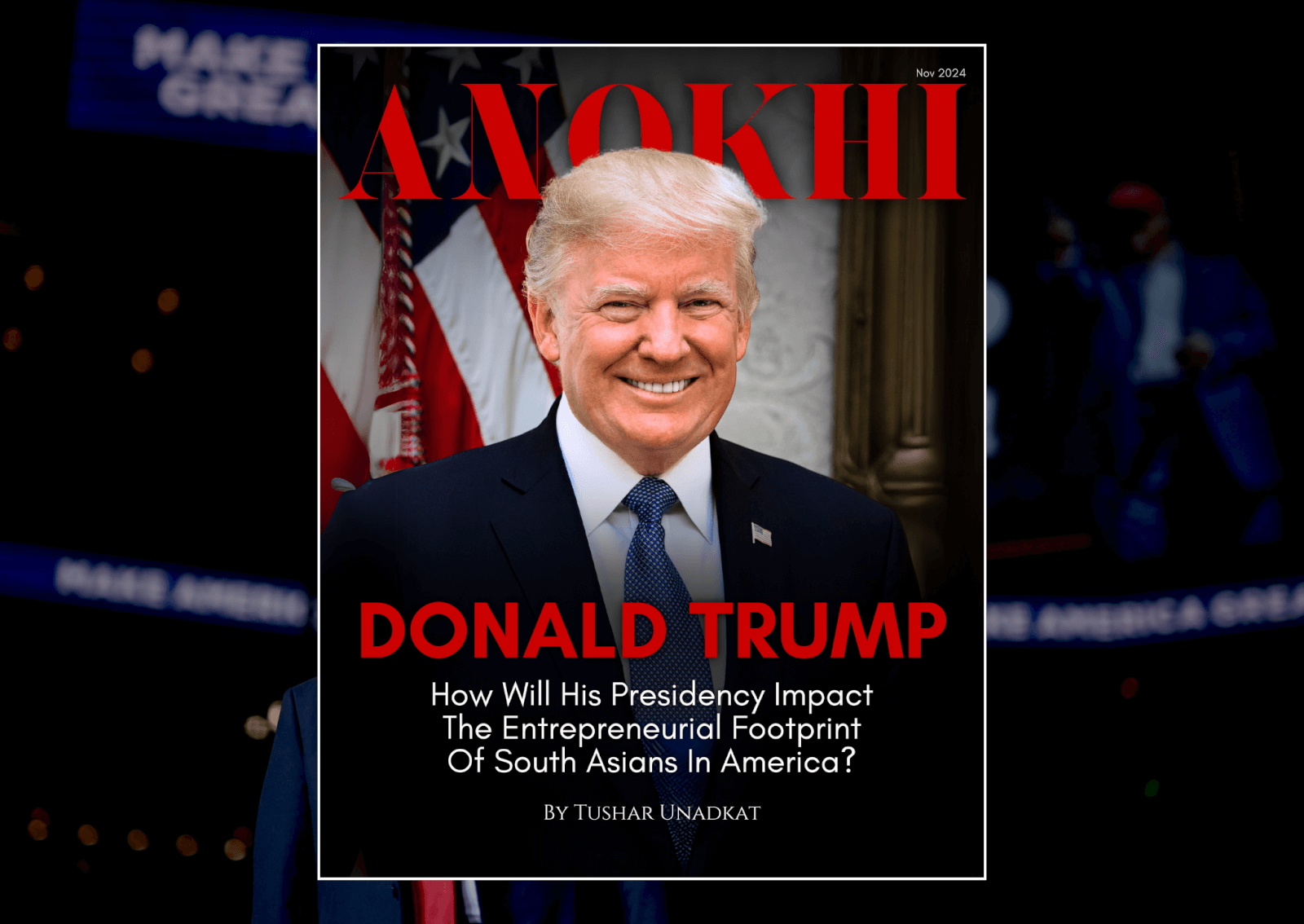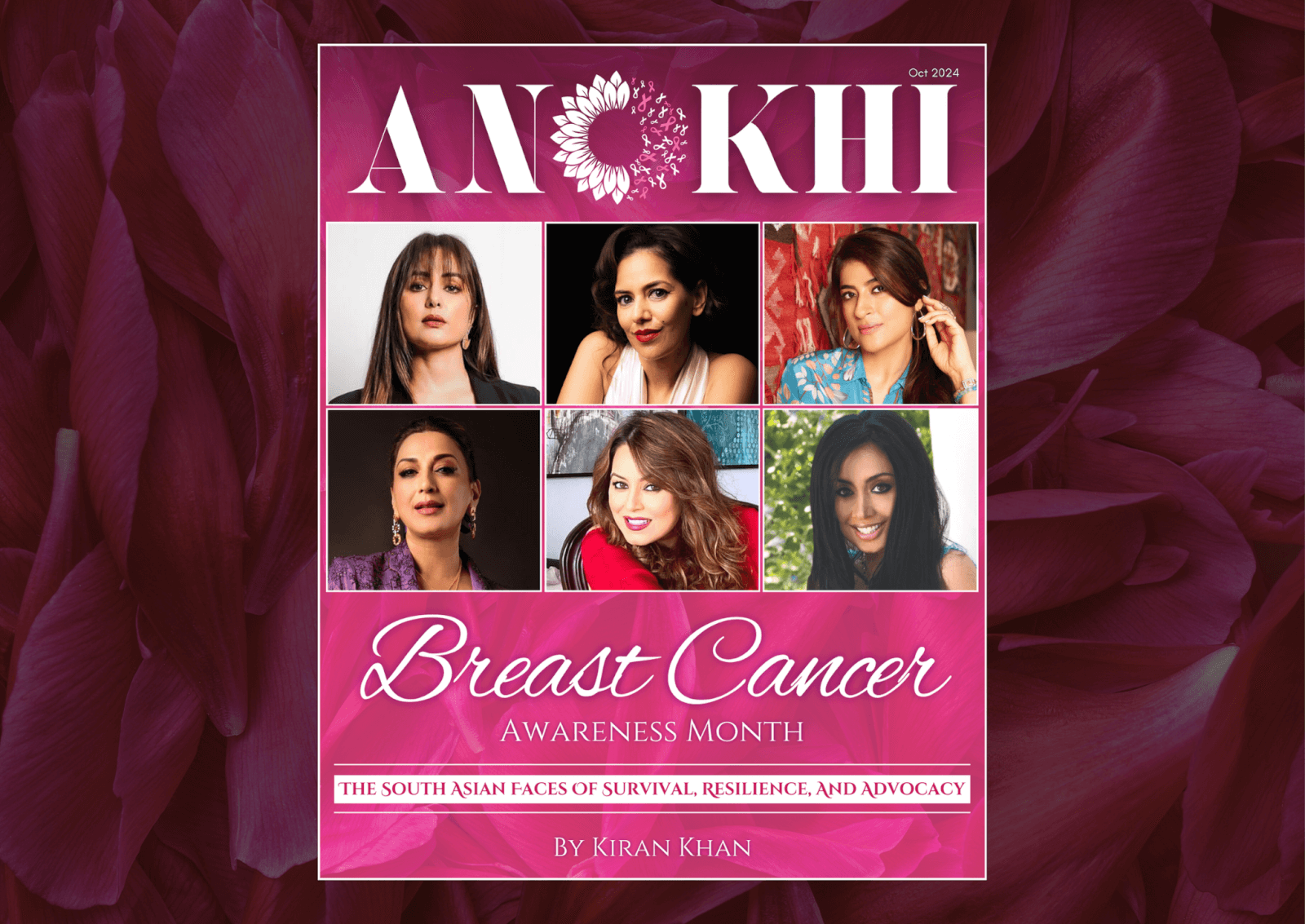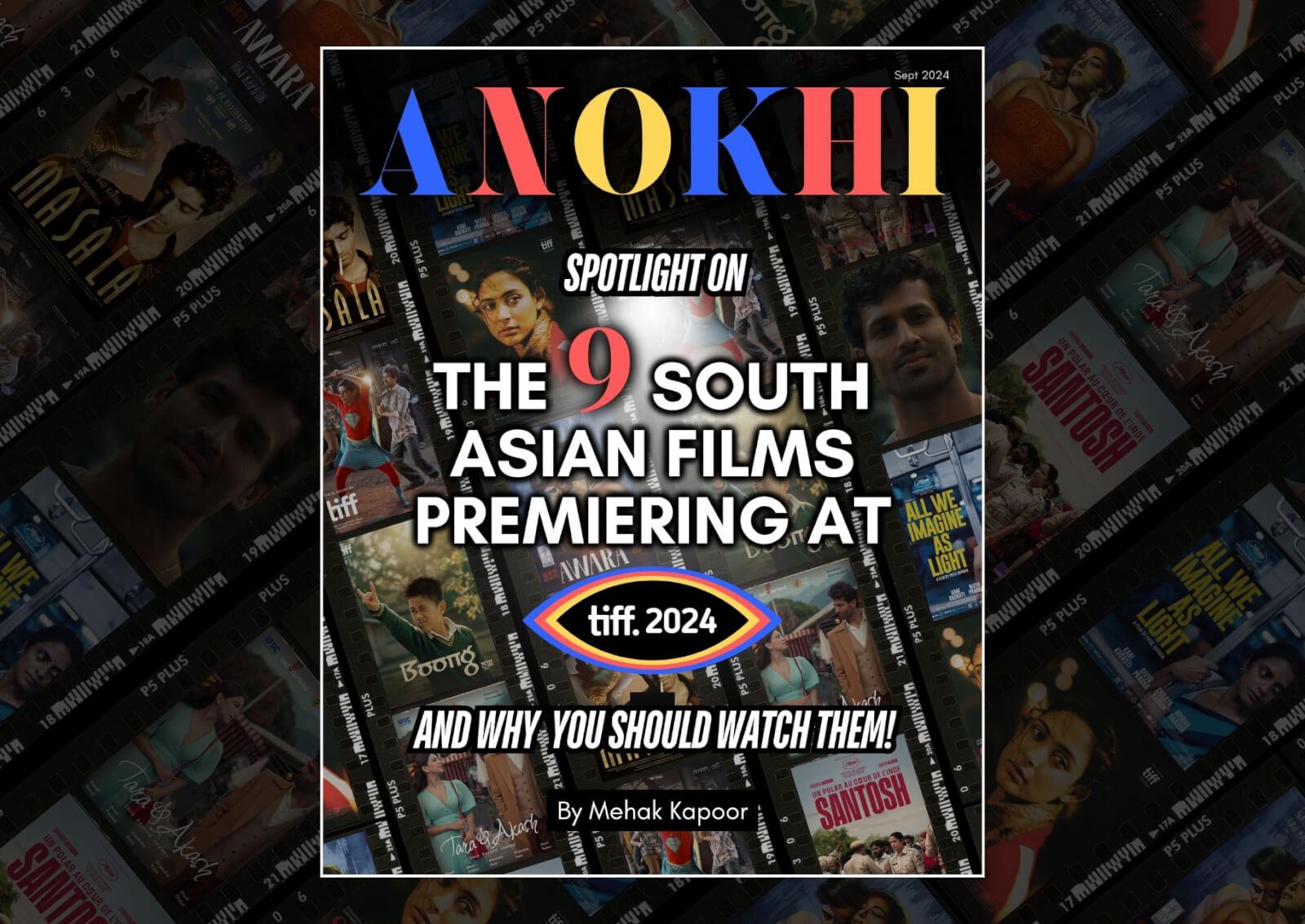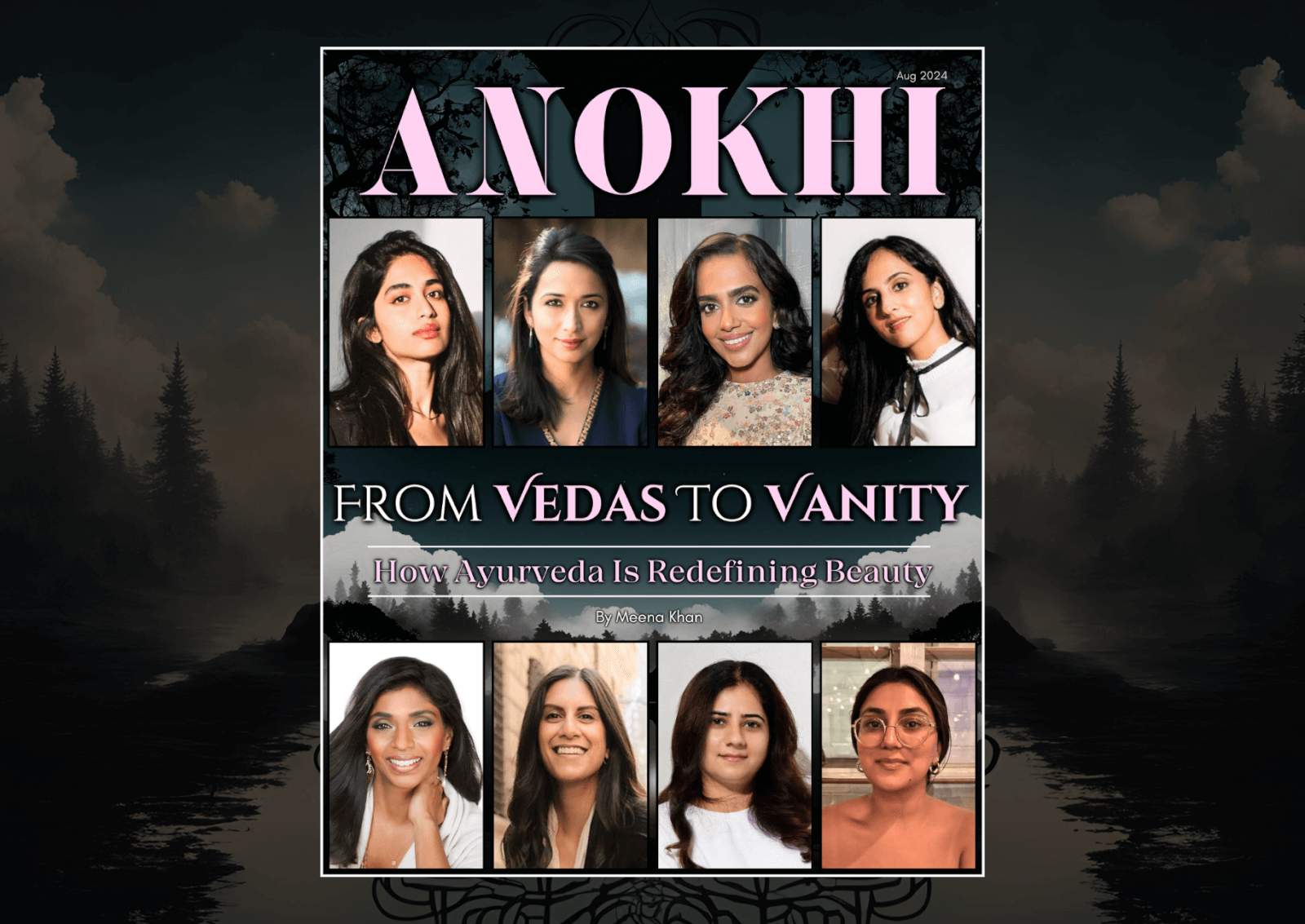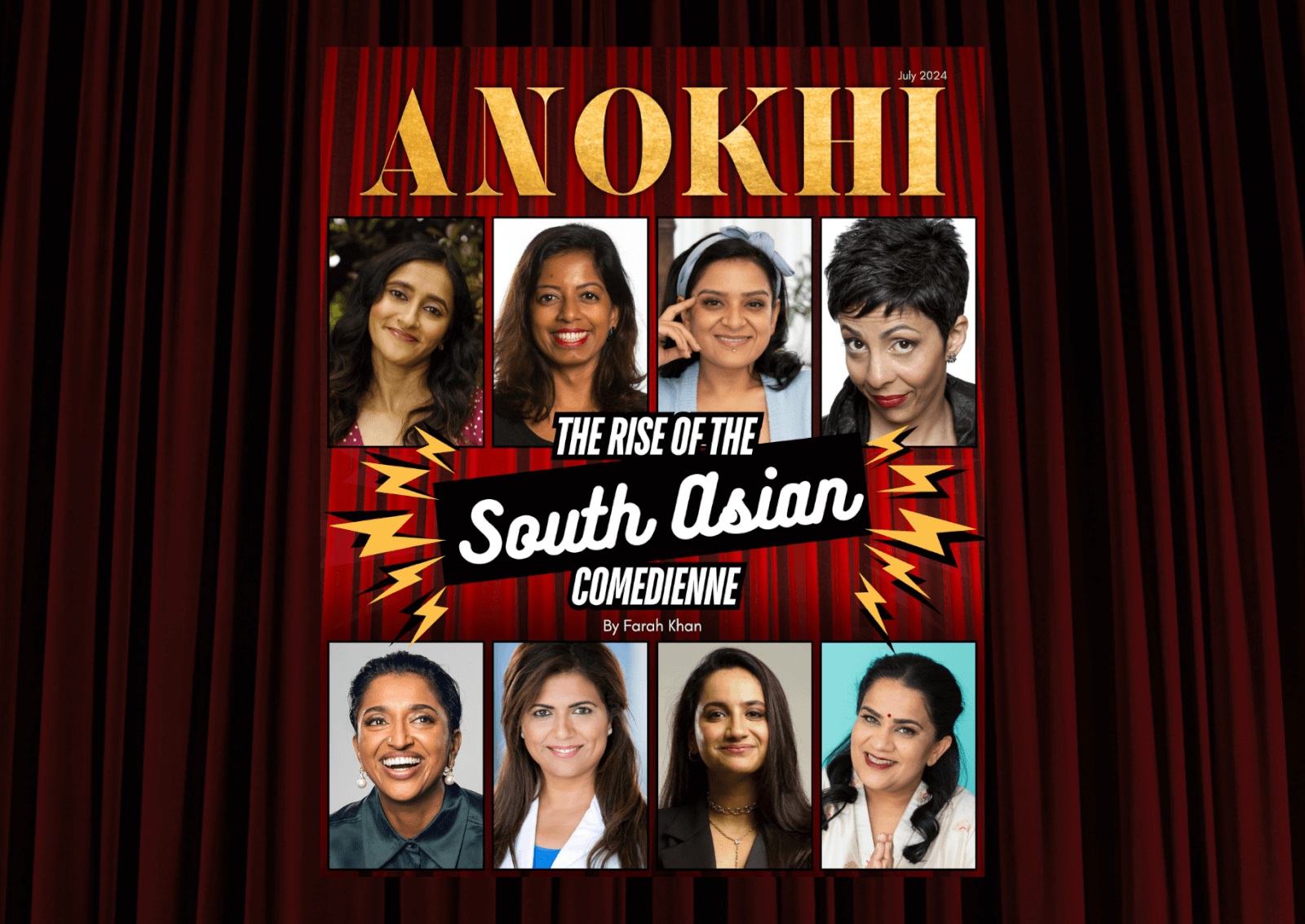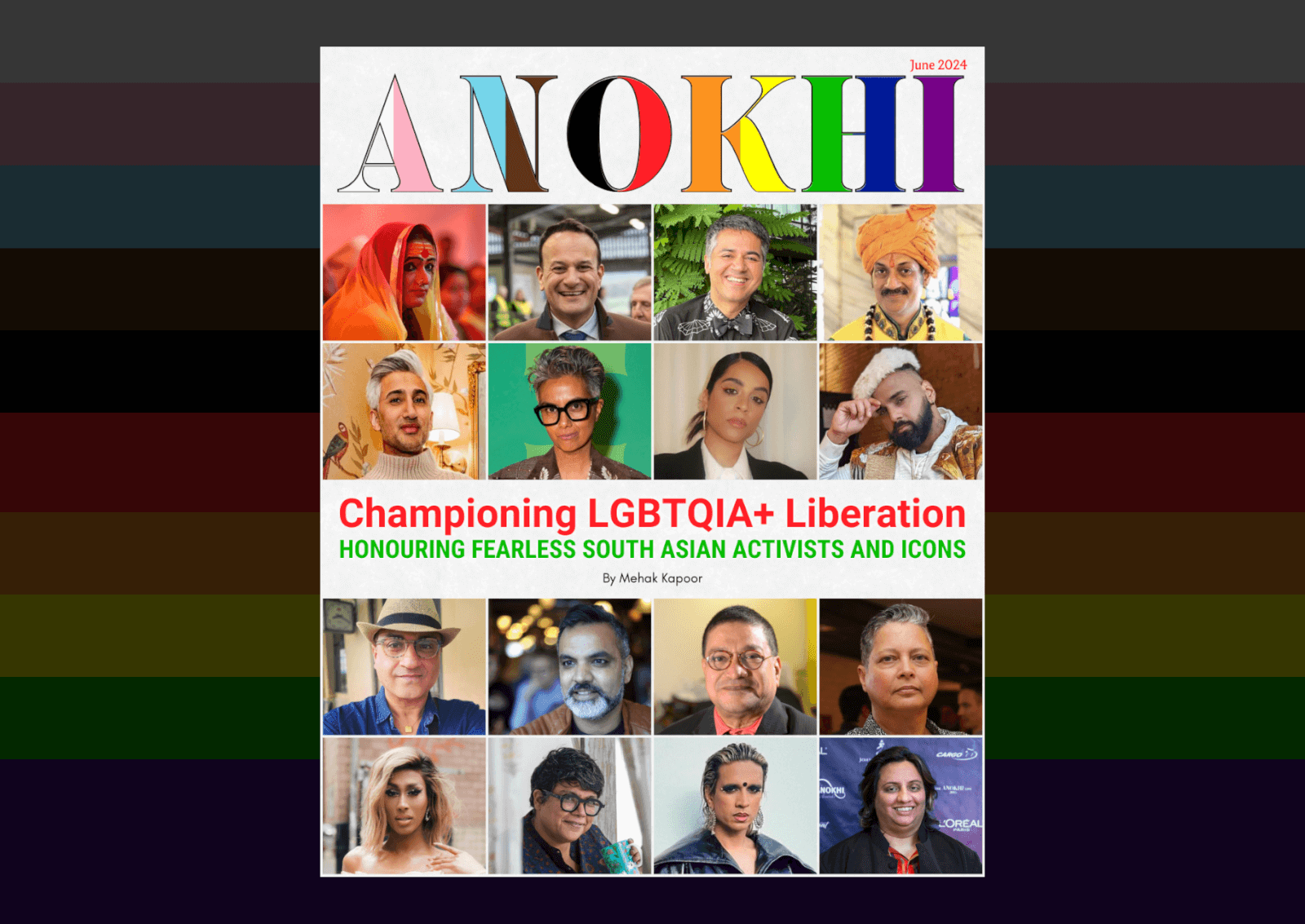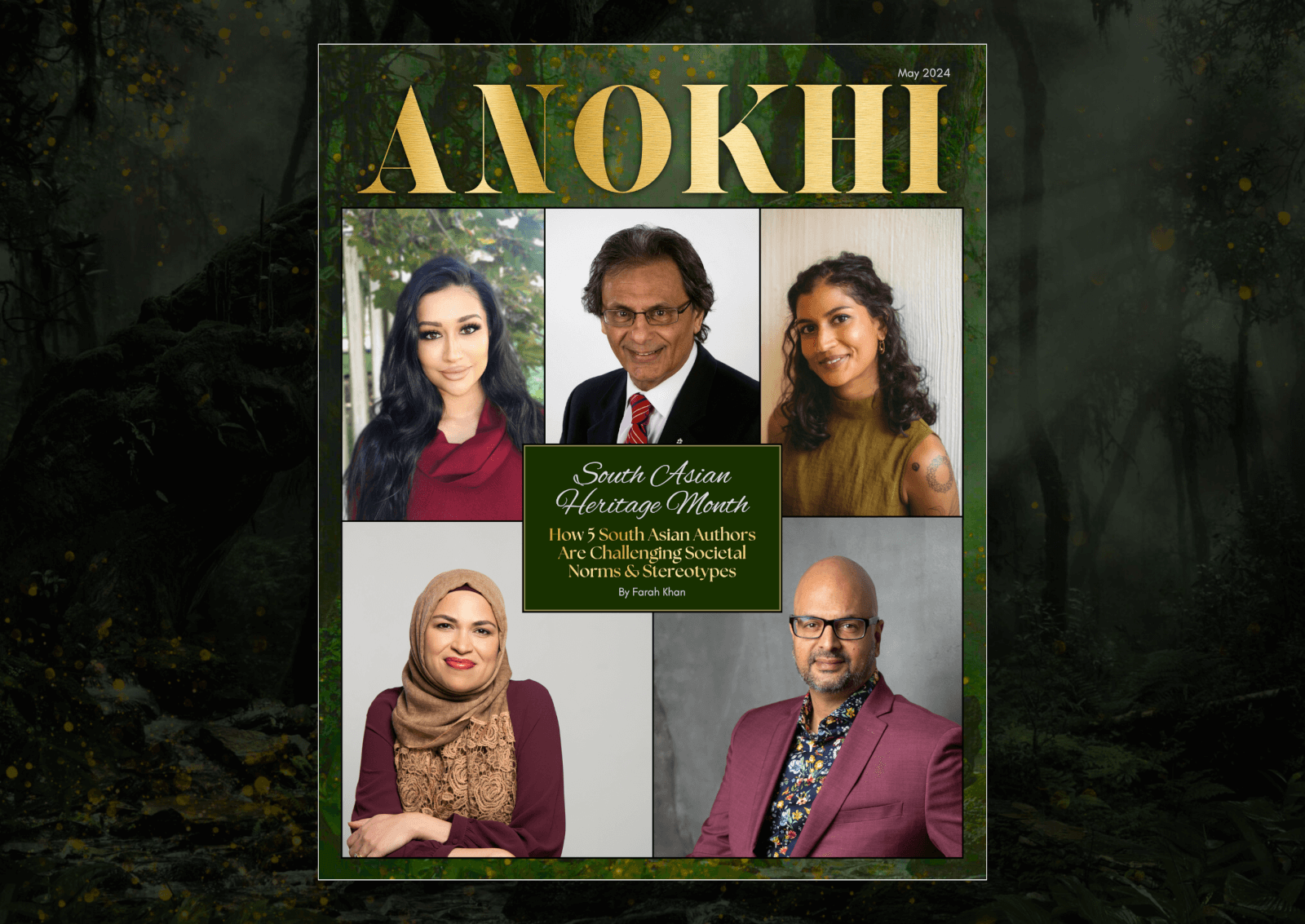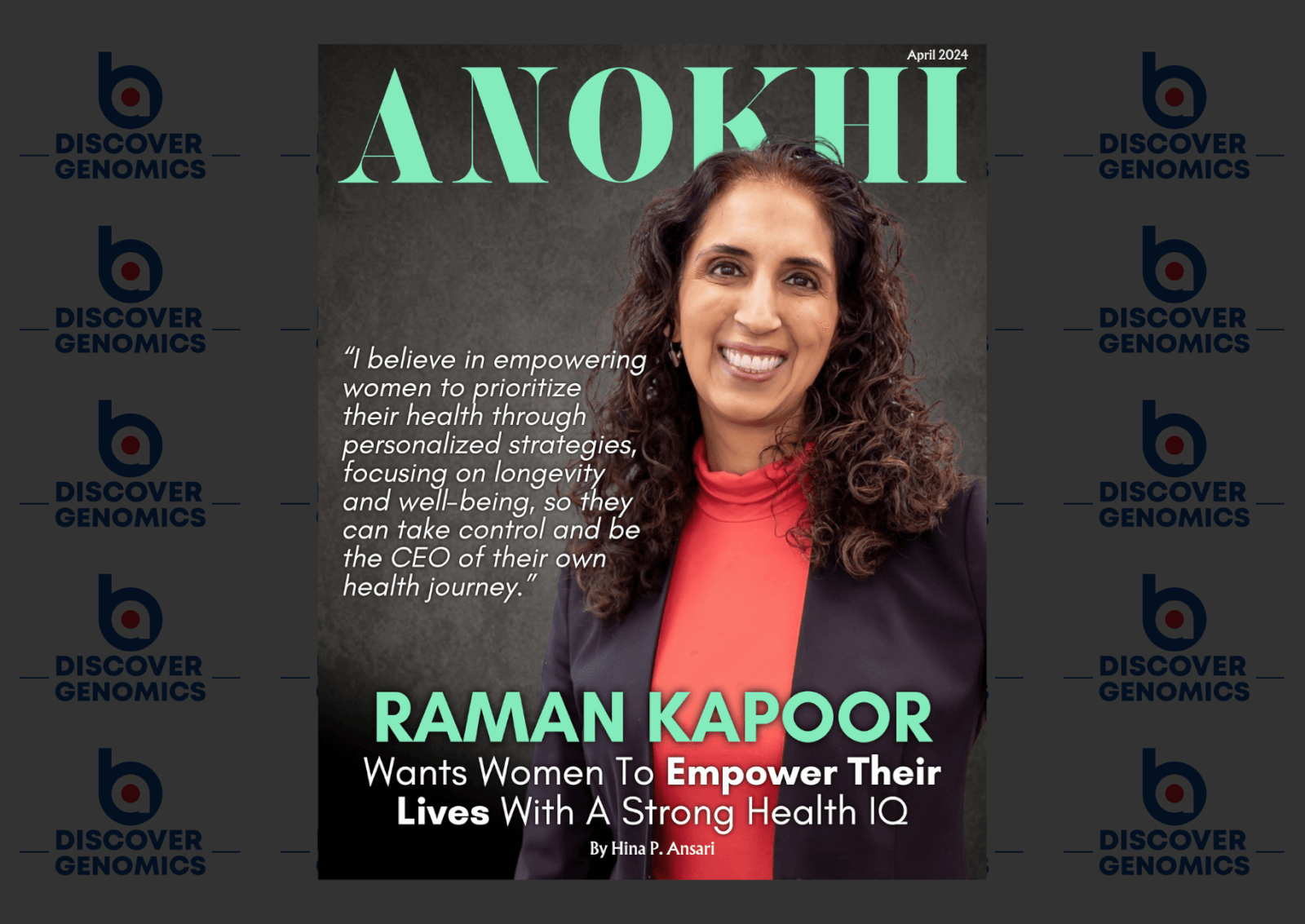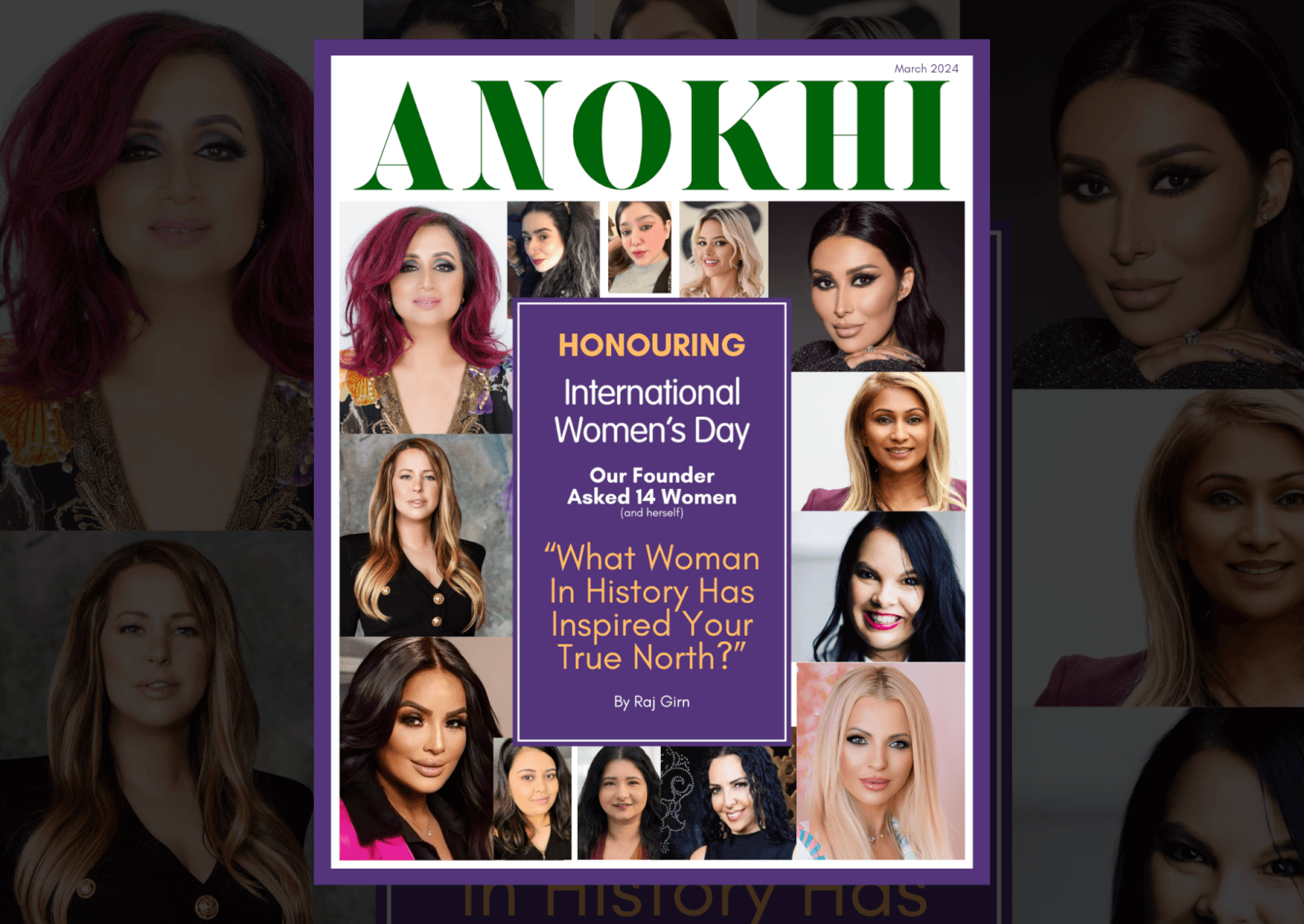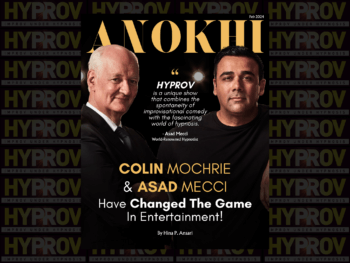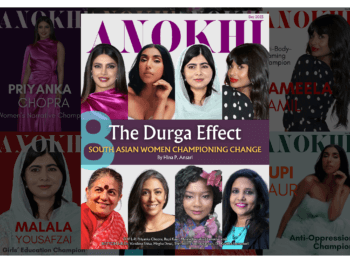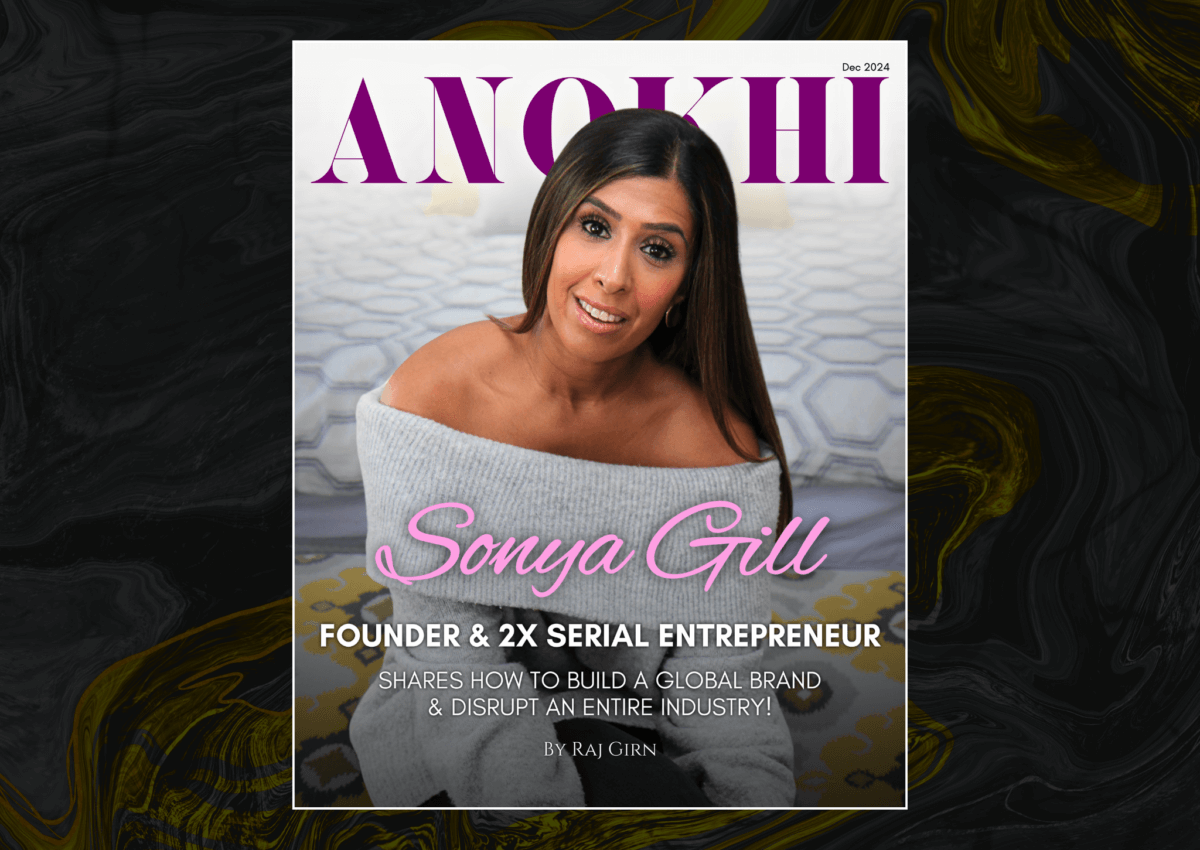
Cover Story: Founder & 2x Serial Entrepreneur Sonya Gill Shares How To Build A Global Brand & Disrupt An Entire Industry
Cover Stories Dec 02, 2024
December 2024 Cover Story
Sonya Gill is a seasoned Canadian serial entrepreneur and digital marketing expert. With a proven track record in scaling global brands and mentoring teams, she’s skilled in crafting impactful marketing strategies and implementing growth hacking techniques.
Her entrepreneurial journey includes founding Youzus, an influencer platform that she later transformed into a successful digital marketing agency. This agency was ultimately acquired by Cummins & Partners in 2015, where Sonya served as Vice President of Engagement.
Recognized for her contributions, Sonya has been nominated as a top entrepreneur by the Toronto Board of Trade, and has authored two books available on Amazon entitled KEEP IT SUPER SIMPLE FOR SOCIAL MEDIA: How To Build Your Brand Online and 50 Ways To Attract And Keep Clients: Author of Keep It Super Simple. Her expertise in digital marketing, honed through years of experience in television, radio, and the digital realm, has made her a sought-after expert in the industry.
Currently, she’s focused on growing her second entrepreneurial venture THE LNK, a platform that bridges the gap between merchants from emerging markets and North American consumers.
I had the opportunity to chat with Sonya about her founder journey, where she leaves nothing off the table!
In this interview, we discuss:
– The fateful night out that changed her life forever as a founder
– How her first innovative marketing company YOUZUS was founded, built and acquired within a few short years (and how she did it)
– Then came THE LNK which immediately got funded (multiple times), solidifying its future and Sonya’s clout as a growth hacking founder, solving yet another unique problem (listen tomorrow to find out what), but this time with B2B/B2C retail brands
– Her honest advice for aspiring founders, South Asians in business, and women entrepreneurs, on how to know if your idea is bankable and scalable
– How to keep a disciplined growth mindset when everything is going against you, to ride the tide
and a lot more.
Check out THE LNK here: https://shopthelnk.com/
Click to watch the full video interview here:
And read it here:
Raj Girn: I’m chatting here with a very special guest, Sonya Gill, who I’ve known for a number of years because of her standout professional career in scale scaling businesses from scratch.
Sonya is an experienced entrepreneur, growth hacker, and digital marketer from Canada who has been pivotal in the scaling of some of the world’s most reputable brands.
She uses her growth hacking skills to build brands from scratch, but she has successfully exited from her first company, Youzus, and is presently scaling her second, THE LNK. And I’m not sure if I said that right, but I know that you’re going to correct me when you come on.
Here, the mission is to empower emerging luxury brands from around the globe to chase their dreams by simplifying the buying process. And I’m not going to say any more than that because I would like Sonya to really lead us into a deep dive on what all of this means and more to share her THE LNK story as well as her Youzus story. Please welcome my dear friend, my girl, a woman I admire for all the right reasons, Sonya Gill. Sister, we are doing this. I love you.
Sonya Gill: You’re the best. Thank you so much. You’re awesome. You’re truly an icon, ex extraordinaire, so I couldn’t be happier than to do one of my first interviews of this year with you.
RG: I love you so much, and I have so much to talk to you about, and I know how incredibly busy you are. So I’m going to dive right in with my first question. let’s begin by setting the stage for everyone, sweetheart. How did you end up in entrepreneurship? I mean, was it a family entrepreneurship type situation? Did you get into it by accident? What what’s the story behind it all before we dive into your first brand?
SG: I come from a family of engineers, teachers, some doctors. And when I was very young, I used to break things apart, put them together. And I remember wanting to go into university to complete engineering and get my engineering degree, except I could never pass chemistry.
So my father was has always been an entrepreneur. I used to go to work with him, and he would always give me side jobs or whatever jobs he needed at the time, whether it was pouring gas at his Petro Canada gas station or fixing cars or changing oil, whatever it was. It definitely does stem from the family blood.
RG: That’s for sure. So let me ask you. I want to dive into your first company, Youzus. Apart from being one of the coolest names for a brand, was this the first company you founded? Can you share the story behind the brand name?
SG: I we launched that company as a blog. This is when blogs were really cool back in 2009. So we launched it as a blog. It did well. I hired a bunch of writers, and the writers essentially wrote about their expertise in fields that they were very passionate about.
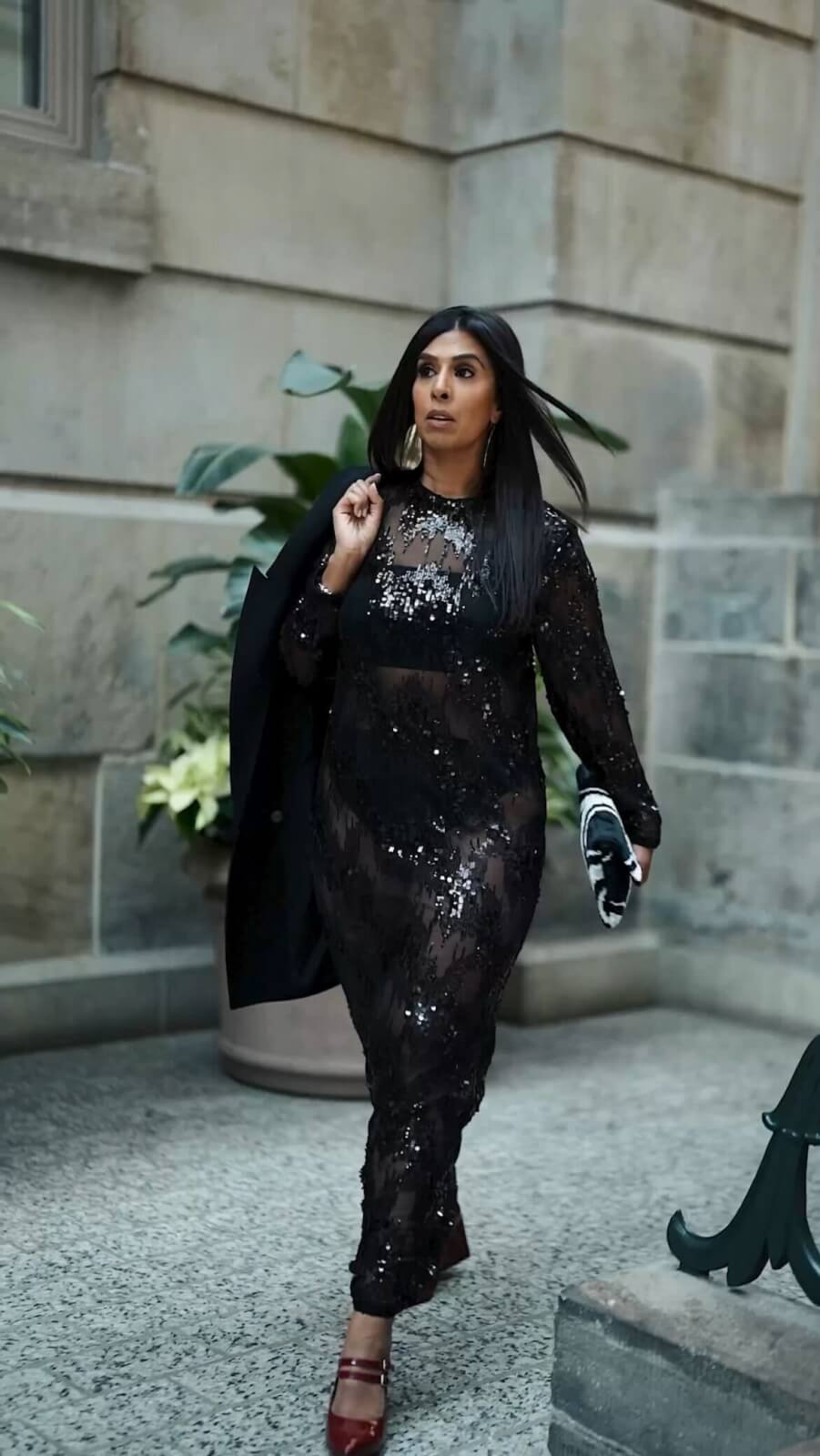
And then from there, I was went on radio. I had my own radio show, I worked with ATN, worked in collaboration with the BBC. And I would always get businesses that would come to me and ask me for advice on growing a business because I had a segment called ‘Entrepreneurship Tuesdays’ where I would interview other entrepreneurs.
So when other businesses started coming to me, I posted up on Youzus, just different pieces of advice before they became motivational quotes and what we know them to be today. And that actually became one of the most popular posts and the most popular weekly segments on the Youzus blog.
And so then I turned that into one of my weekly radio stints, and that did really well. And then businesses would reach out to me and say, you know, “can you tweet about my dry- cleaning business?”.
I was very early on Twitter. I was on Myspace, Friendster. I’m completely aging myself now.
RG: And I know them also. I’m also totally aging myself. Yeah. What was it? High Five?
SG: High Five was super cool back then. And they would reach out to me and they would say, “ could you say something about my my pizza shop”, or “could you say something about my gas station” or what have you.
And so I didn’t even know back then that I was influencing with what I just thought I was helping people.
And then in 2012, I was sitting next to a very dear friend of mine at the time, and we were at a bar. And there were 2 guys at the end of the bar. They were just having drinks, and I looked over to my friend and I said, “you know, this social media, digital media thing is going to be huge”.
I had just moved back from New York at the time, and I knew what it was doing in the United States, and Facebook was really taking off. They’re always ahead of us and I said “you know I went online and there’s nothing like it here in Canada, there’s only one other company doing it and I think we can make it really big”.
And the guys that were at the end overheard our conversation, and they said, are you guys in this new media thing? And they didn’t know what to call it because there was no name for it back then.
And so we said we said, yeah, we are.
And right there and then I formulated a company within one minute, and I gave it a name, and it was called Youzus because Youzus was the name of my blog. It means ‘you and us’. Within 2 weeks, we were pitching to those guys who were the directors of Sun Life Financial, and we landed our first pitch, which was a $1,200,000 a year contract. And we hadn’t set up a corporation.
We had nothing, like, nothing, and I had never pitched in my life before. And so we had to figure everything out from scratch. But one of the wisest things that we did in the very beginning was we poured money into our SEO. And so anytime you would Google social media, digital media, as it was coming up, we would always pop up the very first.
RG: How did you build the company from the point of getting your first funding to the acquisition phase?
SG: We never really needed funding because it was a service-based business model. So our contracts, and our yearly retainers, they they held us over, and so we would only hire people based off of those contracts that we would get. We got everything from KPMG, Sun Life Financial, Build-A-Bear. We worked with Derrick Rutledge, Oprah Winfrey’s makeup artist.
We worked with so many different people. And, and so we we grew very fast. And by 2015, when the space was just getting saturated, it just happens where you were just in the right place at the right time. Truly what is entrepreneurship? Entrepreneurship is, you know, grit, perseverance, and, obviously, you have to have the smarts.
Right? You’ve gotta have the business smarts, and that’s what the universe is going to reward you with at the very end. It’s like, if you have those ingredients, it’s going to come and it’s going to reward you. There’s just no other way around it.
So I was at I was sharing an office space with Satish Bhalla from DesiFest. Great, great, great guy, and there happened to be an Australian ad agency that was sharing office space with him well, and they didn’t know a thing about digital marketing or social media marketing. And so he came up to me and he said, “those guys need your help. Can you go in there and and help them out?”
And so I went in there and, they took me into a pitch. We won the pitch, and then they took me in again to the next pitch, and we won that pitch. And so these guys Googled me, and they’re like, “who are you? Like, what is the thing that you do?”
And the timing was so perfect because up until then, I we had been running our company for almost 5 years at this point, and I was getting to a point where I was getting a little bit burnt out. And I was teetering between, like, either this thing’s going to be global and we keep growing it, or, like, we’re just going to call this a day, and I’m just going to find someone else to come in, take my place, and I’ll just, you know, stay on part time.
And they after they googled me, I was sharing an elevator with them going down going downstairs, and, he came up to me at, outside as I was saying goodbye, and he said, listen. He said, “I really like you, and I really like your company. I love what you’ve built, and I want to talk about an acquisition with you guys.”
RG: And Oh my gosh. What did you feel right there? You must have, like, fallen on the ground.
SG: It was insane. Like, I never I never knew what an acquisition looked like up until that point. I just kept thinking this is a business that I’m growing. I didn’t think of an acquisition strategy. And, he walked away and I screamed, and I called my my CFO at the time, and I was like, “is this for real? Like, who are these guys?”
And it turned out that they were as just as big as, like, the BBDO‘s of the world, and they were coming into Toronto to build their second company. And my goodness, it was it happened so fast.
So within a month and a half, like, everything was a done deal. And then I my gosh. Yeah.
And then I stayed on for a little while and then exited and went and traveled the world and did some charity and took my time.
RG: Oh my gosh. That’s exactly what I would do if I was ever to, you know, move away from any of my brands is that I just want time. Just that time to me and to just absorb myself back into the world and and nature and culture and all those things that you don’t get to do when you’re just on the hustle and the grind. Right?
SG: Yep. You got it.
RG: What was the biggest lesson you learned from your experience with Youzus? Because I know that that is an important part of an entrepreneur’s journey that you have to sit and reflect on. What just happened here? And what was the best part of it?
SG: That’s a good question. I think for me, looking at the journey that I’m on now, that whole entire journey for 5 years was there to teach me what it truly means to have grit and to be persistent. And there were so many times on that journey I could’ve given up.
I never ever borrowed money from anyone. I think the only person I ever borrowed money from was, you know, a friend of mine because I couldn’t meet payroll one time. And and then BDC, which helped me, which which is such an incredible, entrepreneur banking company.
And I would come home, and there would be, like, hydro bills on my apartment door saying that they were going to shut down my electricity because I couldn’t afford to pay my bill because I would pay my employees first, and I would always pay myself last. And I would pay my rent.
RG: Like a true entrepreneur, sweetheart. True entrepreneur.
SG: And it was in those moments, like, I could’ve quit. I’m very smart. I could’ve gone out and found myself a job or built another company or done you know?
Or I could’ve moved back home to Vancouver to be with my parents in their house. Yeah. It was in those moments that, you know, you you cry, you do your little cry, you feel sorry for yourself in that little moment, you release the emotion, and then you get right back into it.
I don’t own anything. Like, they can’t I don’t have any kids. I don’t have a husband. I had nothing at that time. So I was like, if they’re really going to do anything, if they if they need to kick me out on the street, I can live on a street.
I’m still going to succeed. Looking back at that, the lesson truly was that if you can see it and you can believe it like the saying goes, it’s going to happen. It’s that’s guiding you towards somewhere.
RG: That was your North Star. Right?
SG: Absolutely.
RG: What did you learn overall from the experience of the first brand that you used to implement and incorporate into building your second company THE LNK?
SG: When you’re an entrepreneur, regardless of what industry you’re in, the first thing that you go out looking for is what? It’s customers. You go out and you look for customers. And I got very good at finding customers for these brands and for these entrepreneurs. I was dealing with real estate agents and mortgage agents, and they were looking for customers as well, and I would do their digital ads for them.
So I got very good at advertising and finding leads and growth hacking and branding, marketing, the message to market, and product, and just tweaking the message to market and AB testing, like, what’s going to hit, what’s not going to hit, how to fail but fail fast. And if you’re going to fail fast, then you put out the next iteration. Not getting stuck in perfection.
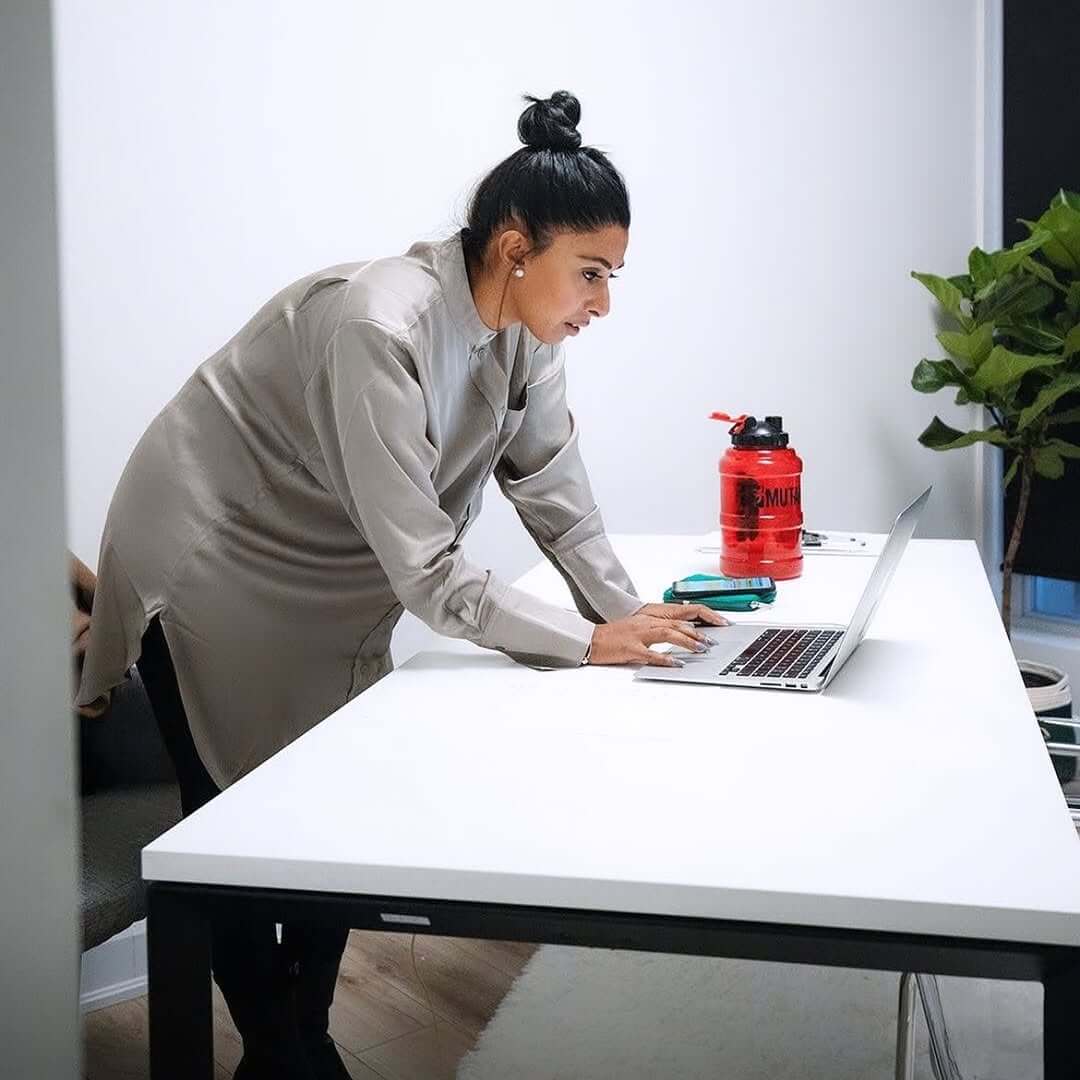
RG: Right? You absolutely can’t get stuck in perfection.
SG: I got very good at learning, building your own brand. Right? And, I wrote 3 books, I think they are still on Amazon to this day.
I think one of them didn’t even make it, but I just wrote them back to back because I was so young. I was 27 – 28 at the time, and it was so hard for people to take me seriously. And so I was like, screw this. I’m just going to write these books, and then anytime I go meet these people, I’m going to hand them my book. And if they don’t believe me, they can read my book.
This is before AI. I wrote that stuff by myself, and it worked. It it worked.
RG: It totally did work, it’s it’s clear that you are a branding marketing genius, sweetheart.
You’re very specific. Right? First thing I noticed are the names that you picked, the THE LNK. “L n k”, guys, not “link”. Talk to me about that name, and then we’re going to roll into that that company next.
SG: Yeah. No. To I can’t take all the ownership for the THE LNK. My husband – I remember this this so vividly – he was coming out of the shower, and I was just like, I need to get away from this name, Bizarro because Bizarro was the name of the company we had pivoted off of because COVID hit and all of that.
And I said, you know, “with Bizarro just I feel like I’ve pigeonholed myself into a certain cultural realm that I, like, I can’t get out of this now”. And once you pigeonhole yourself, you’re in there. And it’s so hard to change the message to market. It can be done, but it’s hard.
So he comes out of the shower and he goes, “do you know what you are? You’re the you’re the THE LNK”, because my friends call me the plug. They say “if you need anything, you call Sonya. She’s the plug. Like, she’ll she’ll connect you to whoever you need to be connected to”. And so he goes, it’s the THE LNK, and then that was it.
And then we birthed the THE LNK.
RG: Wow. I love it. So let’s dive into that. Did you raise funding for that one from the get go? Talk to us a little bit about how that process worked for you this time because that wasn’t the way that you did it with Youzus. That everything there, I feel, from the story you’re telling, was very serendipitous. You know, the the right people, the right opportunity. Right? The so so with this one, talk to us about how this one started off.
SG: So the funding for this one was it was interesting because we had to go through pre-pre-seed, then we went through our pre-seed. And then even when we were doing a pre-pre-seed, COVID hit, and then all of a sudden we didn’t have a company. I was just like, “who needs to buy clothes during COVID?” No one needs to buy clothes, and we didn’t know how long it was going to be around. It was just awful.
But then when we raised the the next round, let me say this. Any entrepreneur that I know that has to raise money doesn’t like raising money because of that feeling of taking money from people. It’s nerve wracking. Even as much belief as you have in yourself as I know I’m going to sell this company. I know that this company I know where it’s headed.
But taking money from people, it’s it’s no easy feat. There are a lot of entrepreneurs that, you know, they’ll go out and they’ll brag about it or there are a lot of hashtags, you know, whatever have you out that are out there, and they they’re there to, commend the entrepreneurs on doing such a great job of raising this this funding. And I’ll never forget during our last funding run, I threw a a a big party.
RG: Was that the one I was at?
SG: That was the one you were at. Yeah. It was fantastic. And it was a fantastic party.
And there was one certain entrepreneur that I wanted there, and he’s a 3 time founder. And I admire him, he’s just so brilliant. And he said, “Sonya, I love you, but I’m not coming. And I just want you to know that I don’t believe in celebrating funding grounds”. And I said, okay.
I was like, well, can you explain why? And he said, “because not until you are acquired or you go to an IPO of some sort that that’s actually when you should be celebrating.”
Because from here on, and this is the naivety, is that from here on, it is a journey, and you are every single step of the way thinking about how this company is going to hit a $1,000,000,000 valuation, $500,000,000 valuation. How are you going to get your first million customers and because that’s the size of this company that you’re building. It’s another scale of huge scale.
So you’re not building this right here like $1,500,000 contracts here and there. You’re building something massive and it better hit, and now I see this journey and it just keeps getting bigger and bigger and bigger and the amount of people we’re hitting and the amount of people we’re talking to and the people that are coming to us and all of it amazing. Very, very, very eye opening.
This journey has been very eye opening in the sense that if you’re going to do something huge, you better be careful what you wish for because that hugeness, you’re you’re not getting your life back for for a while.
RG: Absolutely. You know, you you said something there that has prompted another question around the funding scenario. You know, a lot of people when they go to raise money, they’re looking at money. But what else in addition to money were you looking at? Because I know you enough to know that you’re probably looking for strategic partnerships. Certain kinds of people, their their values, their belief systems.
Can you share that a little bit for everyone watching, listening, or reading this? Because all that people ever talk about, when they talk about raising finances is just raising the the finance. And I know it’s so much more than that. Right?
SG: Share that piece for everyone. Yeah. Because it doesn’t come down to just money because money can be made. If you have the right strategic partnerships, you’ve got the right alliances.

I actually just shared this today on my Instagram, and it said, the wealthiest person in the room knows a person one phone call away. Business is all about who you know. It’s about relationships.
And those even now, we’re now in our our second round of financing. And I’m really looking at these strategic partners, and they could be in logistics. It could be in payment processing. It could be in import export. And I know those relationships are going to take me a lot further than just simply raising another few $1,000,000 and putting it in the bank because then I’m going to have to hire more people and bring on more team members.
You’re constantly thinking about it strategically. And I would absolutely say hands down if you could mix the 2 and find more strategic partnerships, then you could find just like cash injection after cash injection and dilute the crap out of everybody. Obviously, you know, go with go with the former.
RG: Yeah. Yeah. Absolutely. And you know me. I mean, I am, you know, a proponent for entrepreneurship.
SG: You know, it’s what I believe in. I’ve never worked for anyone. I don’t know how to work for people. Yep. And, you know, I’m definitely that person that is not a funds raising person. I’m a strategic partnership person.
RG: And maybe that’s the conversation I need to have with someone like you. Right? Like, the experience of raising funds for me is a very daunting task, and then there’s a lot of people like me out there, especially women and especially people in the minority space. We’ve seen the stats out there, Sonya. Less than 10%, female founders get funded.
A fraction of that goes to South Asian women. What is your comment around that? Because the the the stats are so daunting, but you you are not that stat. Right? What do they need to know?
What do our South Asian women founders need to know that you wish you’d have known when you started at the very beginning?
SG: Yeah. It’s not that women are in incapable. We already know that. We’re already empowered. We’re already very capable at doing 10,000 different tasks all at once. We know what we’re worth, and we know what we’re capable of.
So my husband, for example, he’s in sales. I hear this guy sell all day long on the phone. I hear his colleagues sell all day long on the phone. I’m surrounded by men in my industry. My my engineering team is all men. My investors, majority of them men.
Investors I speak to constantly, men. And it comes down to for me for me is this:
The difference comes down to their storytelling techniques and the way that they sell.
And it is Yes. Black and white, and there is no gold and orange and purple and cream, which is what women do.
RG: Oh my god. Can I tell you I have to stop you a second before you carry on with the rest of this? In all my years of talking to people about business, about funding, about all of the things that, you know, entrepreneurship is about, no one has ever said that to me.
Can you say that again for a moment about the difference between men and women when it comes to the sales space? I feel it’s really important.
SG: It’s sales. It first of all, it’s storytelling, and it’s sales. And it’s black, and it’s white. That’s it.
The way they explain it to you, there’s no fluff. There’s no “umms”. There is no “ahs”.
There is it’s just straight to the point, very logical.
And either you get it in 1 to 2 sentences and if I’m hanging on to dear life trying to listen to you after 3, 4 sentences and I’m still not understanding it – you’ve lost me. Then I don’t believe that you can sell it. I don’t believe in you as a founder. I don’t believe in you as a salesperson.
In Rick’s case, my my husband, for example, I don’t even believe you can sell me a house. But the way that you have to be able to sell your story, the best storyteller in the room, not always the best founder, is going to win.
I know so many incredible female entrepreneurs. Amazing. Bloody brilliant. Brilliant. And the only thing that stands in between them and a man is storytelling.
RG: Guys, you’re watching, listening, and reading this. That is the most pivotal, most powerful, most empowering, most thought-provoking thing that you can take away from this conversation. It’s not even over yet, but I just know that that is a piece that’s going to be your moment. I have got to ask you this, Sonya.
What was the void in the marketplace that the THE LNK was built upon? Because I know you well enough to know that in order for you to do put your time into something, your effort, other people’s money that you are entrusted with, or the people that you’re bringing on or the strategic partnerships, the mission that you’re on in the industry, as well as where you want to be when you’re done with your participation in this brand and where it’s going to end, being afterwards. I know that everything you do is on purpose.
So what was that void in the marketplace? Because you don’t do all of what I just said unless there is a big fat mac truck that is hollering at you and saying move out of the way.
SG: Besides a $1,000,000,000 valuation that I’m chasing? So in within technology, within my world, within the startup world, there are businesses just built on where you could take a massive company, and you can find little hiccups in that company of where what that company could be doing better.
And you can find those pain points, and money is in the pain points. Yes. And there are entire businesses built on these nodes. We call them nodes.
And there are entire businesses built on these nodes. And they’ll take these nodes, and they’ll develop businesses out of them, and then they’ll sell it back to Shopify’s or Amazon’s, and they’ll say, hey. Like, I solved your problem for you that you clearly weren’t doing really well at. Here you go. And they make their millions, and they walk away.
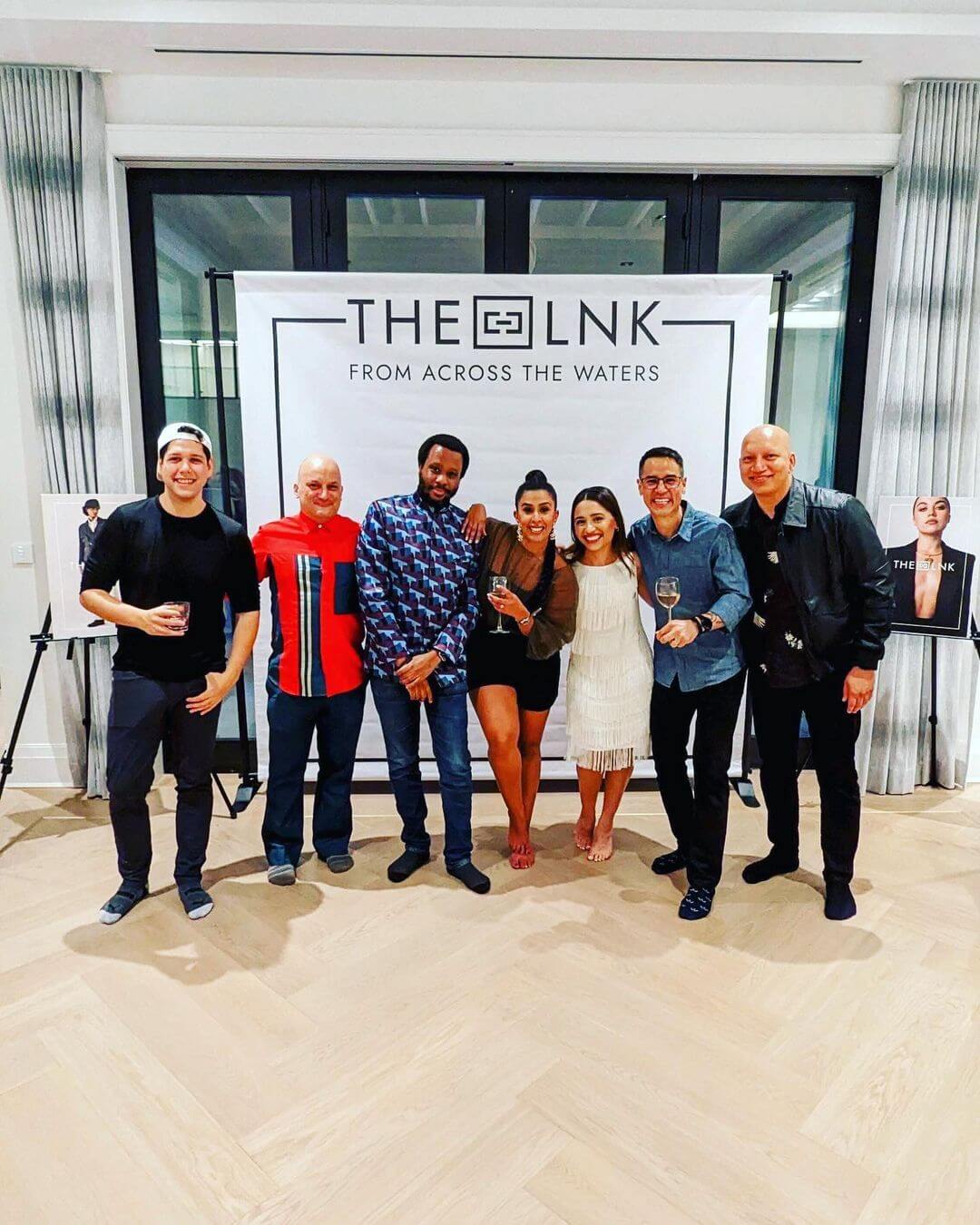
In our case, we discovered this node when our brands taught us how they wanted to use our platform. And you always have to listen to your early adapters. So there’s there’s a certain way I want to do my business, and either I can put that on you and say “Raj, this is the way I want you to use my business. And either you can learn to use it or or you can get completely confused and be like, this makes absolutely no sense to me”. I am not using this.
And when we launched our marketplace, we had no idea that international brands struggle so hard to do business internationally. It’s a phenomenal phenomenon.
There is so many businesses now in 2024 that are doing business internationally, import, export. They’re doing business amongst each other. The D2C space is huge, massive. And these brands were coming in to our marketplace, and they were using their marketplace website as their own website because everything else out there didn’t solve any of their issues.
They’re ex Shopify, ex Etsy, ex Facebook, like, very, very, very smart crowd. Very strategic. Very strategic. And I was really so strategic when I built my advisory as well. And, you know, I brought on ex-Farfetch, and I brought on ex-Gilt, and I brought on ex-Bed, Bath and Beyond because I was like, I want to know what they did because I want to make sure I never do that.
And I brought them on very strategically. And so what we did is we built out international storefronts for all of our brands. So when they come on, they build their international storefront. And when they’re in that international storefront, they can use it for import, export, wholesale.
This [THE LNK] is a massive revamp on what Alibaba is. Faster shipping, expedited shipping, no duties to the customer, virtual cards, exchanges, like, all of those different pain points. And, and that’s that’s what we’re we’re doing.
And there’s so much more that is coming that I’m only telling you the first version of what we’ve built, but what we’re building now through AI and what’s coming – it is just absolutely insane to me that we’re building this. It’s it’s just crazy.
RG: How much of what you’re building here with the THE LNK borrows from, you know, benchmark ideologies from Shopify, from Amazon, from Etsy. I’d love your thoughts and perspectives on that because another thing I know about you is that you don’t just do something without thorough research. Right? Talk to me a little bit about about that because I feel that what you’re building here is going on that big of a journey. It it is. Yeah.
SG: You’re a 100% right on that. So in our company, we have a rule, and our rule is is that you have to constantly be learning, listening, watching, reading, and you have to share with one another. You’ve listened to a really cool podcast or you’ve you’ve write a really great article. And the amount of extensive R&D that went into the last 2 years, I could show you thousands of articles that we’ve all read between me and the team. And every single one of those articles is off of different businesses in different verticals.
So in marketing, we have a saying which is if you want to be a great marketer, don’t look to your own industry. Look to other industries and what they’re doing. So for example, I’ll never look to my industry for what makes a really great marketing campaign because that’s going to be too saturated. It’s going to be low hanging.
So or I’ll go to the car industry, and I’ll go see what the car industry is doing. We picked pieces from Apple from their website, and we’re like, these are this is really cool. We picked pieces from the airline industry. We looked outside of our industry.
The easy thing to do, which a lot of people would probably do, is they will build a Shopify, so they are going to go copy what Shopify is doing, and then they will put it out there in the world, and that should be good enough because I copied it, and they’re clearly doing something right. And then that’s how copying typically goes.
But the reason copying never succeeds is because you didn’t take your time to properly research and discover and strategically try to figure out what works, what doesn’t work, and finding those notes that I talked about, to build a successful company. There are so many people you and I probably know that have tried to copy, and then it’s it just hasn’t worked because copying it can work in the beginning. But unless you you iterate consistently and constantly enter learning and researching, it’s in in my opinion, it doesn’t work.
RG: I absolutely agree with you, sweetheart, because when you copy something, you can only copy what you can see. You got it. What about the 90% that you don’t see, which is where the success actually lies with the companies that have that kind of trajectory. Right? You nailed it.
So I want to ask you this. When you look back on the journey of the THE LNK so far, what’s your biggest success milestone outside of strategic partnerships, which we’ve talked about, and outside of fundraising. I’m going to make this one hard for you a bit.
SG: What has been my biggest win? Yeah. Oh my goodness. I was going to say strategic partnerships. No.
I would say that it’s in in building in building our team and building our name. We’re still very small, we’ve barely made a dent in in anything.
And we haven’t even raised the next round of funding to actually go out there and tell the world what it is that we’re doing.
I would say it’s our team, but I would say that it’s building the teams overseas that is so crazy to me that from here, we’re registering our business in places like India, Nigeria, Brazil, now Colombia. You know, we’re we’re bringing in people that speak Spanish and Portuguese and Hindi, and, then we have all these different currencies that we’re learning about and FX rates.
And it’s really what we’re building overseas that I would say is our proudest accomplishment because we’re sitting all the way here in Canada, and these people overseas have they’ve heard about us. They’ve learned about us.
They’re getting referred to us. They’re just like, I heard that I can come here. I can help you because we’re really trying to understand and go into their brain and determine – what is their pain point? What is it that really helps these guys make money at the end of the day?
And that for me is up until now, they’re [finding pain points] my why if we were to ask “why why do you wake up every morning?
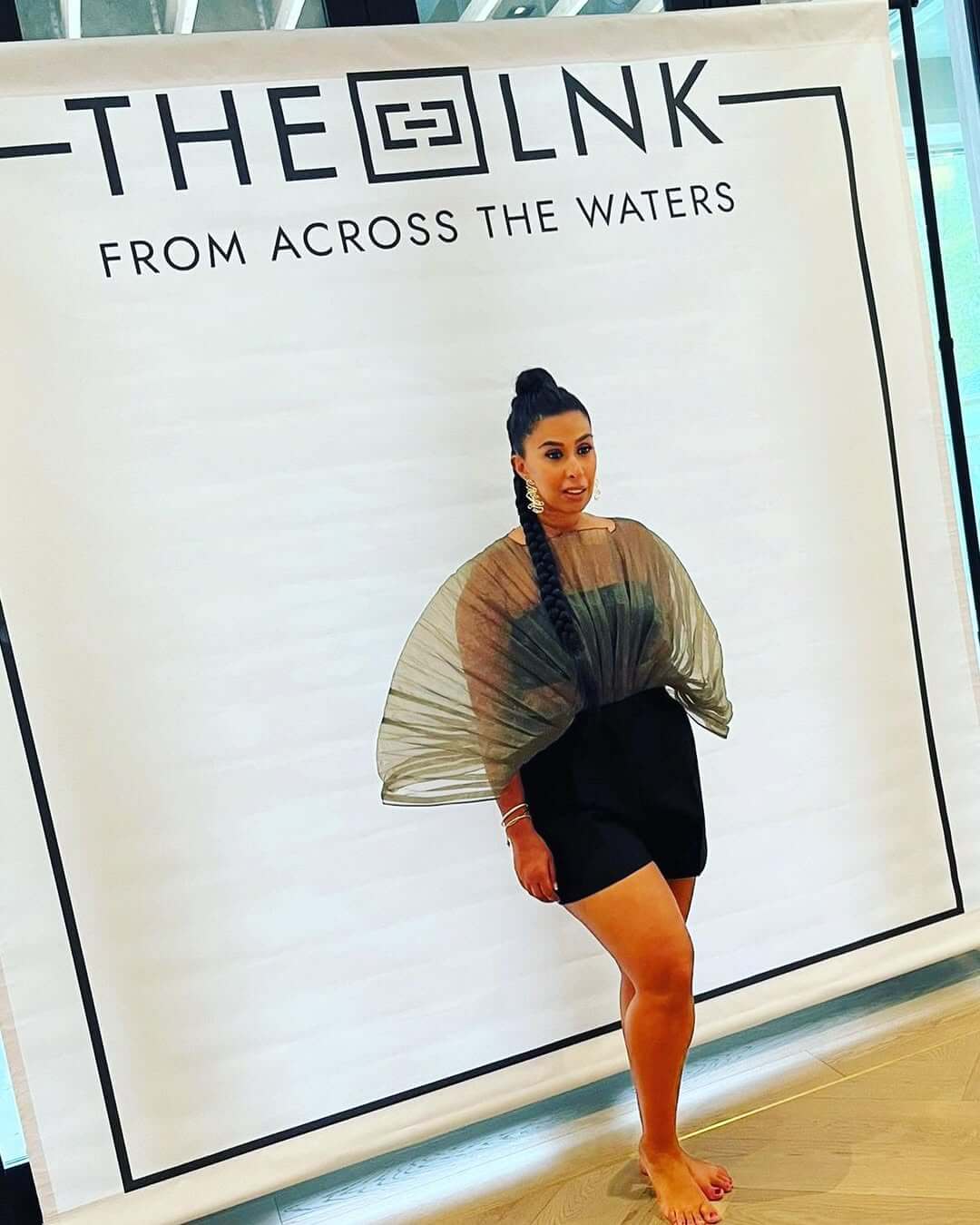
And every morning, I get up, and I have 8 to 9 different brand calls back-to-back showing them the platform and listening to them. And I always start off every call with asking them to tell me their founder story.
One brand said to me, they used to be the manufacturer for Michael Kors and Coach. Then I saw how much money they were making. And so I said no forget it I’m just going to do this brand myself and I was like wow okay we have the manufacturer for Michael Kors and Coach. Another brand said oh you know we used to manufacture for Gucci.
But we look at them. We’re like, oh, they’re artisans. No, man. They’re not artisans. These guys are really good at what they do, and some of the world’s best brands that we know buy off of these guys.
Yeah. But you can find these guys on on the THE LNK now, which is so cool. So I would say up until now, that been my biggest win. Like, holy crap! Like, how did we do this? It’s crazy.
RG: I want to ask you this based off of that. I can’t believe that we’re coming to the end of, our chat together. I feel like we’ve only just touched the tip of the iceberg, so you know I got to have you come back on.
And I actually want to bring you on, sweetheart, my other brand, The Open Chest Confidence Academy, where we talk literally about, you know, female leadership and all the things that it comes with. I would love to chat with you about participating in that with any micro time that you may have, maybe an interview, maybe a podcast, something like that.
So other than the $1,000,000,000 valuation, what is the big mission of success for the THE LNK for you? Is to bring on as many, you know, small to midsize brands from around the world onto the THE LNK and really help these guys.
SG: There are a lot of brands in Canada and in the US and the UK and, you know, places where we would think that, know, how much export do they really do at the end of the day? But these guys, they export to Australia and Singapore and the MENA regions and, like, India, and you have no idea the amount of packages that are sent on a day-to-day basis around the world. It’s mind blowing.
You know, I want brands to be like, okay. I’m going to launch a brand. Where’s the first place you’re going to go if you’re going to launch your brand? You’re going to go to the THE LNK. And then from the THE LNK, everything else will follow from there.
RG: Looking back, my love, what would you tell your younger self? You know, I have to ask you a proverbial question. What would you tell your younger self pre-starting your companies that you know today that you just wish that’s something that she would’ve known then? Just maybe you make the journey a little easier.
SG: That don’t be in such a rush. Have some patience. I still tell this to myself that don’t be in such a rush. Don’t be, don’t be under so much pressure to get to things so fast and that everything is happening as it should, all timing is perfect and everything is unfolding as it should.
RG: Babe, I ask myself the same thing every day. I’m constantly convincing myself that I that I can and I will and I must and there is no other way, that I do not have a Plan B because my Plan A is to succeed. So what does that need to look like?
So I want to ask you, when you hit that wall, because you are just the same woman as me, when you hit that wall, what does Sonya Gill do? How do you get over how do you jump over or break through that wall? What do you do?
SG: You have to go through your downs. You have to. I’ve learned that I’m was always so afraid of, you know, don’t think negative, and everything’s going to work out. And if you think negative, then you’re going to attract more negativity and, you know, then it’s going to spiral out of control and your whole week’s going to go to crap, which it usually does, but it’s okay. Feel it, acknowledge it, and then write it down and release it.
So usually when we hit a wall or something very bad bad happens to us, As women, we get very, overwhelmed because it’s in our head most of the time, and we as women we love talking, we love talking through our emotions, and when we talk through our emotions we feel better at the very end of it.
My drawback sometimes in life is that I don’t let myself get close to enough people. And when I feel like I’ve gotten stuck or I hit a wall, now I know that it’s usually in my head, and it’s actually not as bad as it is. And so what I’ve done now is I write about it. And then I’ll get on a call with my co-founder and say, I just need to word vomit with you. Just tell me, you know, tell me if I’m wrong in my thinking.
Or I have my spouse. Right? And then I talk to my spouse about it. So it’s it’s okay, and you are going to hit those walls. And if you want massive success and there’s just noother way around it.
You have to go through those lows. Otherwise, what’s the point of life? There’s no why are we even here? Well, how do we even know what success is unless we’ve gone through failures? Like, what is the benchmark?
What’s the trajectory? How do we know? You don’t know what you don’t know, so you need to know what you don’t want in order to know what you want. Right?
RG: Yeah. And and so what does success look like for you, sweetheart? I feel that this one’s going to be a hard one for you because you are constantly on the journey towards actualizing and creating more of your journey. Right? You’re like me in that way.
SG: Yeah. Success for me definitely isn’t about the money as much as I, you know, joke around and say it’s the $1,000,000,000 valuation. It’s it’s definitely not about the money for me. For me, I have done this with 3 times now. There was a company in between that, I don’t talk about often but I sold for its for its parts.
It’s always about the journey. For me, it’s not about the cash that comes at the very end of it. Although that’s always nice, and I welcome it freely. It is definitely the journey.
And the other thing I often think about is so I chose not to have children. And then sometimes I think that, well, you know, did I make a mistake? Maybe, you know, should I have had children? Because after this, after, you know, I sell on IPO or whatever it’s going to happen, I’ll be, what, 45, 46. What is that next thing?
Am I going to build another company? What does that success story look like for me? And the word charity always comes to mind. Always.
RG: I can’t believe you said that. I can’t believe you said that because as you were, talking this out, my mind just kept seeing philanthropy, philanthropy, philanthropy. And you’re probably going to do something in your space as a marketing branding tech hacker, you’re probably going to find some way to help that philanthropic world. I just know that’s going to happen.
SG: Your show should be called psychic sessions with Raj.
RG: It should, shouldn’t it? So as we close off, my darling, what advice would you give to aspiring founders? Oh, this is such a nauseating question, but one that’s so important. Oh my gosh.
SG: Without saying anything saying anything cliche. Yes. I would say everyone’s journey is super duper duper duper unique.
And, you know, this is going to sound absolutely cliche, which is, like, not everything you see on Instagram or not everything you see on social media is the north star. That’s not the truth. It’s someone else’s truth, but it’s it’s not necessarily going to be your truth.
I know so many founders. Unbelievable. Like, you would never think these people existed because they’re they don’t exist on Linkedin. They don’t exist on Instagram, and you meet them. You’re like, I’m sorry. You did what?
And the advice that I would give is, like, it’s everything doesn’t have to be shouted from the rooftops, if that makes any sense. Yes. It’s okay to be private. I love how I’m giving this advice where it’s like I’m like in the thick of branding and marketing. I have realized that over the years, I’ve gotten more private in my my private life, and I’ve gotten more branding and marketing other areas of my life. I think that’s a good thing.
And I just think that sometimes certain founders become founders not for the right reasons. They come become founders because it looks really cool, and you’re able to, you know, post these stories about your journey and do the PR and the talking and the speaking gigs, which now I really shy away from because why? What’s the point?
Yeah. Well, the point is ego. Right? It’s like people need other people to know that they’re important. Because perhaps they’re not sure whether they are.
RG: There’s there’s that kind of voice, or they truly are using this as an opportunity to get clients. Those are the only 2 things I can see, babe. You nailed it. You nailed it. They’re both important.
SG: It just depends on where you are in your journey, and we’re not here to judge anyone’s journey. No. No. And the reason I brought up those those founders that are are nowhere to be seen is they really built companies for the sake of building those companies to actually solve problems and to push, you know, push our our world forward.
RG: And I think that’s more important than anything else. I agree. And you know what I’m manifesting into my life, sweetheart? So I haven’t talked about this, to any anyone, but I’m going to talk to you about it. So the whole world’s going to now know in this podcast when it goes live.
And that is that I am looking for a man who exemplifies what you just said. He does not need to tell everyone that he’s fabulous. He does not need to shout from the rooftop of what he’s done, but but he’s fucking done it. Yes.
He’s just done it. He’s done it. He’s just done it. So prayer for me. Prayer for me on that one, girlfriend.
SG: Oh, I will! Write write it down. This is what I did when before I met Rick.
Someone had told me she was a a spiritual guide, and she said write down exactly everything you want in a man and, sleep with it underneath your pillow. Yeah. Sleep with it under your pillow. And then 8 months later, I found Rick.
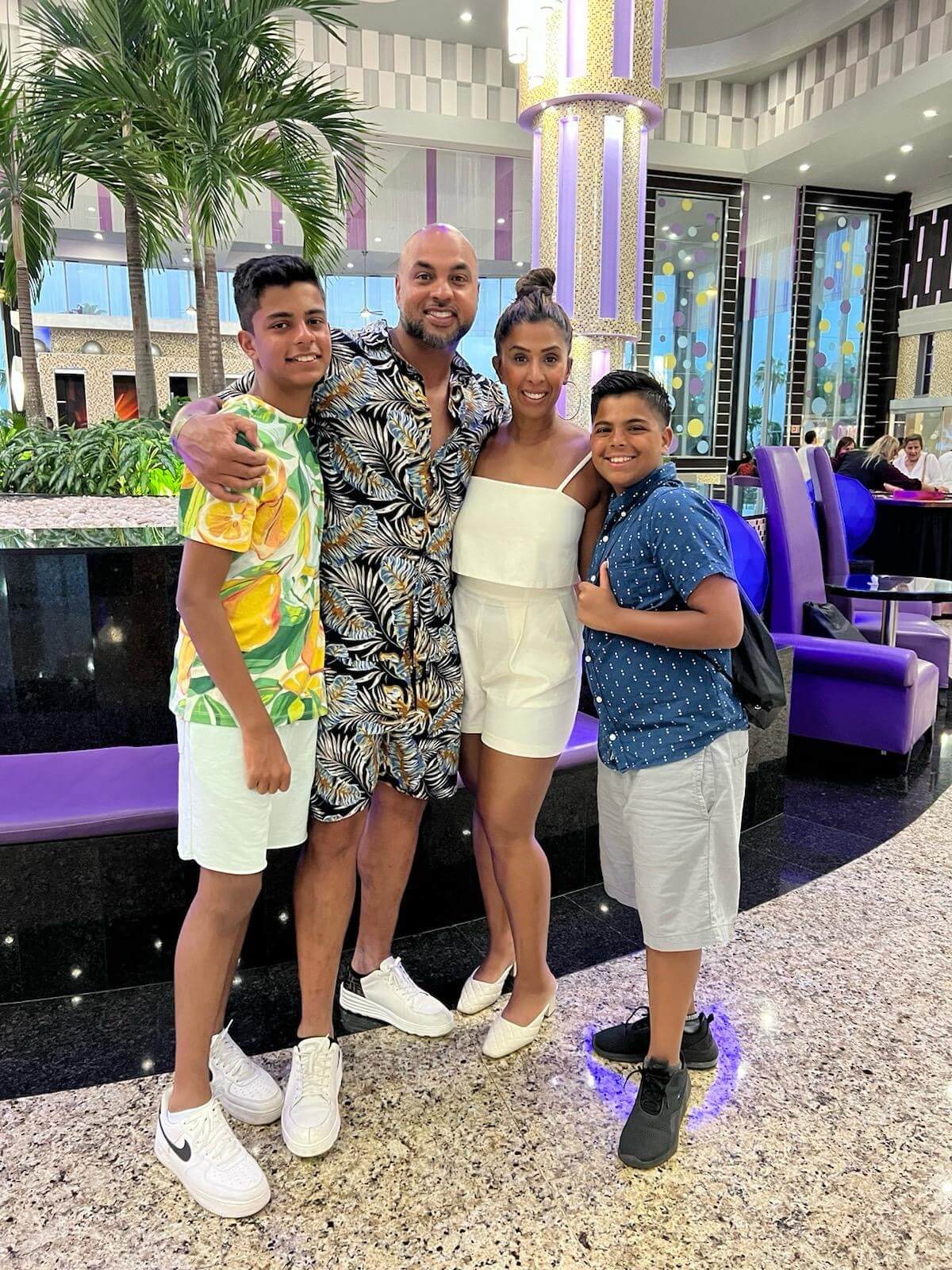
RG: Oh my gosh. You guys are, like, perfect 2 peas in a pod. The energy around you guys is beautiful. I love it. He supports you. You support him. Everybody understands it.
And I’d love to see the best part of your your social media other than all the things I learned from your entrepreneurial perspectives is how you show up with your family. I just want to share that with you. Thank you. I think it’s beautiful. Thank you.
As we close off, my darling, I want to, first of all, thank you for giving me your time because I know that you’ve got a 1000 people that are pinging you, and want your time.
But I just want to ask you one last thing, and that is, is there anything that we haven’t talked about that you’d like everyone to know? Is there, like, words of wisdom? Is it just something that they need to know that you feel compelled to share? I think we are very stuck these days on this thing.
SG: I do encourage more people to go outside of their homes or their office or wherever it is. Connect more with nature, connect more with family, connect more with friends, with people.
You know me. You know, as we’re as global warming is happening, or climate change is happening, I don’t like, I can’t speak to this as scientifically as I would like right now, but our energies are are also are also changing. And I just I just know that the more we’re around our technology, the more we’re not giving ourself the time that we need to actually grow actually grow, if you know what I mean. I do. So that’s the that’s the final thing that I think I would leave here with.
RG: Absolutely. And on that note, sweetheart, you’re going to laugh at me, but where are we sending people to hang out with you on social media? You’re the best. I love you. Please follow the THE LNK.
SG: I don’t I don’t need any more followers, but follow the THE LNK. There’s all the all the updates will are usually on there. And, of course, I do have a public profile. So if anyone does want to follow me, I try to post up as as much as often as I can. I love you.
RG: Thank you, my love. This was great. Thank you so much for coming on, darling.
Your journey is wrought with so many nuggets of wisdom. Thank you so much for, you know, giving that to, you know, all of our wonderful community.
And I just I genuinely wish you success in whatever that word means to you as you journey through life. And I cannot wait for us to sit down and, you know, like, break bread and and just have time where we’re not even talking about, work, which I don’t even know if that’s possible, but we’re going to try it.
SG: We’re going to do it. Don’t don’t even worry. It’s going to happen. It’s going to happen.
RG: Guys, please go support Sonya and yes, my darling. Please go support Sonya in this incredible new innovative company. There are a lot of wonderful things that they haven’t, you know, yet talked about because, you know, everything needs to be talked about at the right time, but you want to go and support and see what they’re doing. Right? This is how we create momentum.
This is how we learn, and I want you to go out there and do that. I love you, Sonya. Love you. Thank you so much.
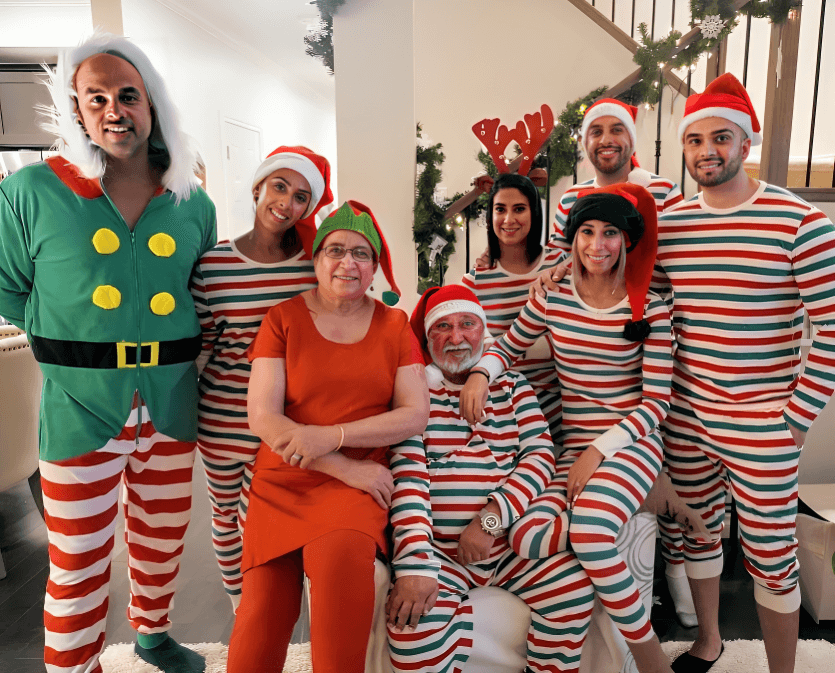
Here are some fun rapid fire questions that Sonya answered for us:
I am aware of…gut feelings
I am fearful of…not spending enough time with my parents
I am angered by…liars
I am in love with…the process
I am best at…creative work
I am shy of…being the center of attention
I am always ready for…a challenge
For me, excitement is…gratitude
For me, confusion is…there is an answer around the corner
For me, prejudice is…lack of understanding
For me, peace is…understanding
For me, hope is…when you have faith
For me, satisfaction is…at the end of the night before going to sleep
For me, loyalty is…truth
For me, friendship is…family
For me, love is…kind.
For more ANOKHI Magazine cover stories, click HERE.
Raj Girn
Author
Raj Girn is an award-winning media personality, confidence coach, consultant and mentor. Bio: https://www.theopenchestconfidenceacademy.com/about/our-founder/ Testimonials: https://www.theopenchestconfidenceacademy.com/about/testimonials/





















































